
11 minute read
The Curriculum
04 | THE CURRICULUM
A BLENDED CURRICULUM —
Our premium education at King’s College School, The Bahamas, offers students a blended pathway that combines the British curriculum – including the gold standard Cambridge International GCSE courses at 16+ – and the rigorous International Baccalaureate Diploma Programme. We believe this is a unique combination that offers both breadth and depth and ensures entry into the top universities around the world.

Throughout their schooling, students will be immersed in the very best international education. The Cambridge International GCSE curriculum creates open-minded, creative and dynamic individuals, with students learning from first-hand experience – not just textbooks.
The King’s College School programme provides a structured and rigorous learning pathway that ensures deep learning and skill development across a broad and balanced range of subject areas. From a young age, our students learn to work independently and grow in confidence – so as they become older, they are able to analyse, evaluate and interpret the complex world around them. As the school grows, students in Years 12 and 13 will move on to the International Baccalaureate Diploma programme, a worldrenowned and internationally recognised qualification. This gives students a robust preparation for university, or the world of work, by providing a transformative learning experience to build confidence, independence and an inquiring mind. Upon graduation, students receive the globally recognised IB Diploma. The IB Diploma programme ensures that students leave school with a wide range of qualifications that encompass the Arts, Sciences and Languages. Students are taught how to think critically and how to apply a global mindset to their studies. This blended curriculum truly advantages students at King’s College School, The Bahamas – developing academic rigour and subject stretch from the globally acclaimed Cambridge International GCSEs, then embedding the transformational global learner profile characteristics from the International Baccalaureate Diploma Programme that is proven to support the most successful transition into the leading universities in the world.
Challenge and Extension
Central to our principles is the importance of nurturing the unique individuality, talent and passions of all students. We wish to develop every child’s potential and to allow them opportunities to undertake work which moves forward their learning and allows the development of higherorder thinking skills. That’s why we offer students access to our Challenge and Extension programme – available to all students, regardless of ability. The foundation of the Challenge and Extension programme is the development of a ‘mindset for learning’, incorporating the ideas of resilience, effort and the understanding that success is in the hands of the individual.
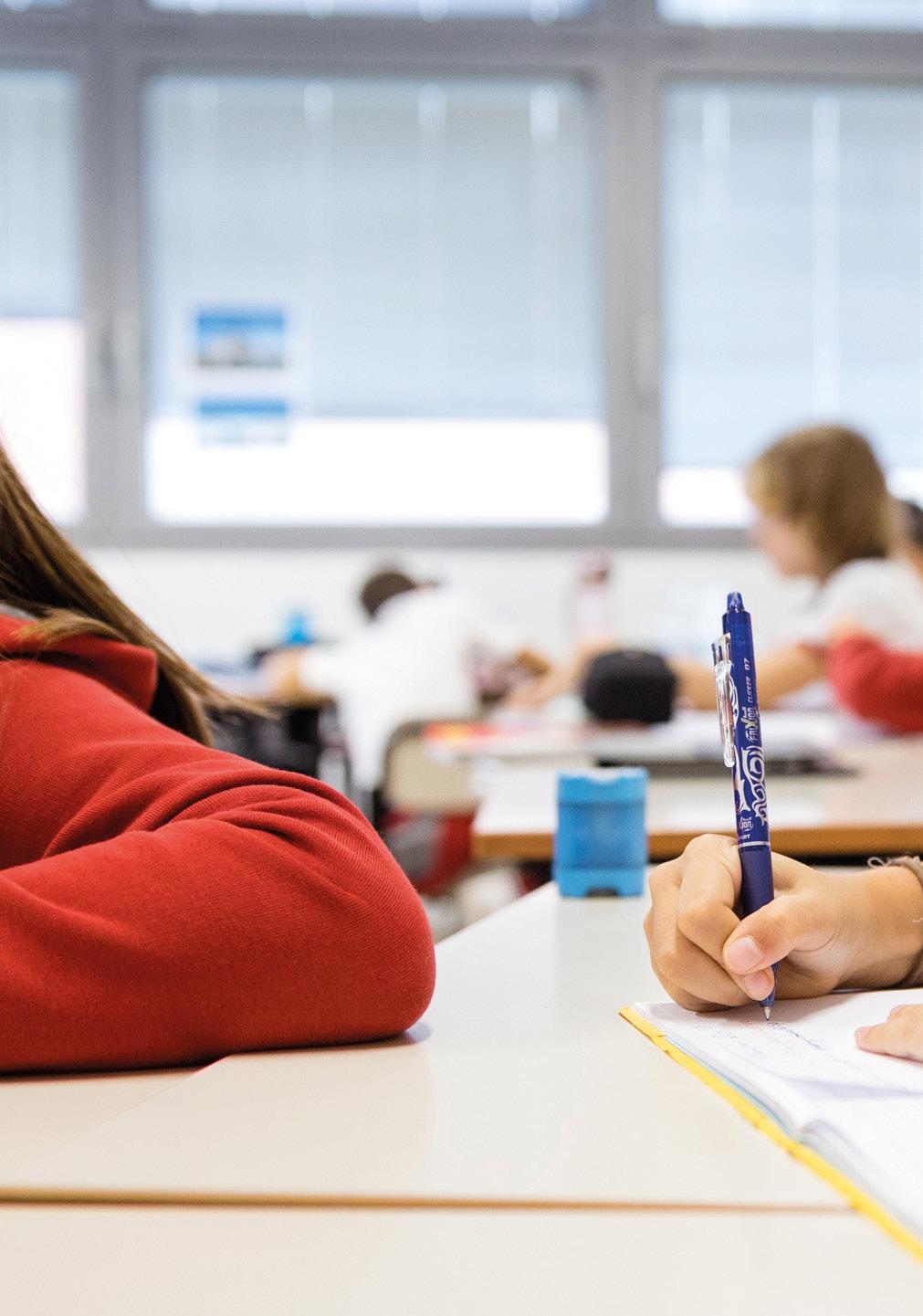




“From the start, we consider how different children learn so that each student gets every opportunity to do their best and we can help those who need it; to help students learn difficult concepts in a rewarding and memorable way. It is so important for young students to find learning fun – once they get that sense of accomplishment, it stays with them throughout their learning life.”
GRAEME CRAWFORD
REDDAM HOUSE FOUNDER & INSPIRED GROUP PRESIDENT
LEARNING JOURNEY
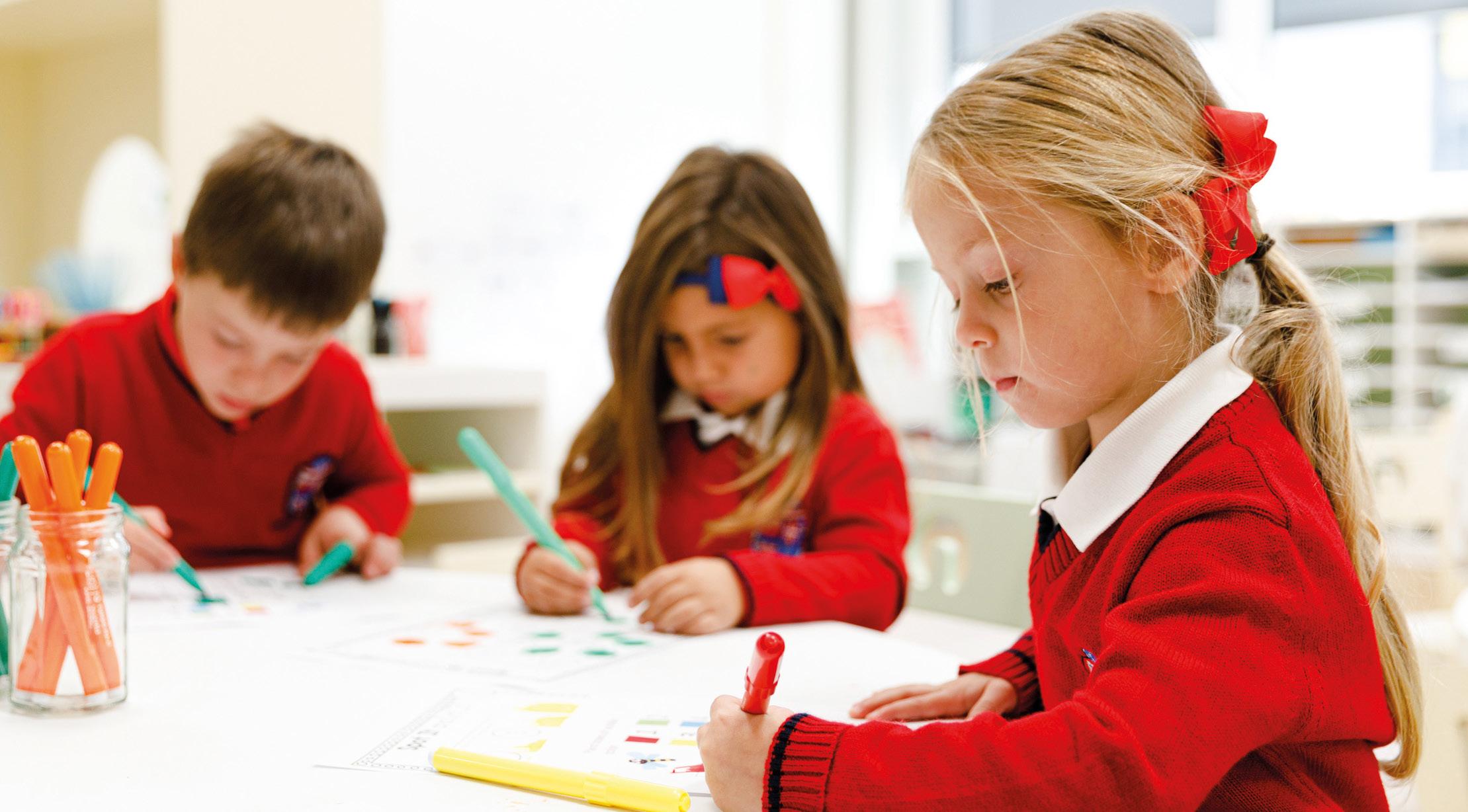
PRIMARY
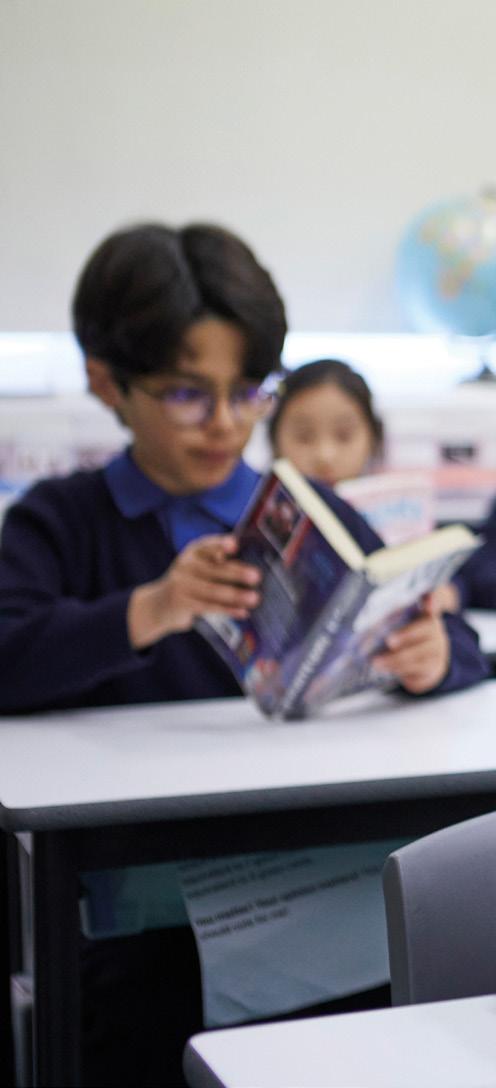
INFANTS
RECEPTION
4 YEARS OLD
Learn through play
Early Learning The unique Inspired Approach to Early Years combines the learningthrough-play philosophy of Reggio Emilia, with additional numeracy and literacy activities to ensure that every young learner gets a head start. From kicking a ball, building with blocks and painting, to singing in a group, our specialised teachers encourage young learners to understand their environment and develop into happy, motivated students. Sometimes it gets messy, but it will always be rewarding and will help students develop socially, mentally and physically.
YEAR 1 – 2
5 – 7 YEARS OLD
Exploration and evaluation
Cambridge International Primary Curriculum We engage a more structured approach to the school day, to help students build upon what they have learned in Early Years and to embed a deeper learning for reading, writing and mathematics. Students will still be encouraged to explore and play, but they will also be able to describe their discoveries in words and numbers. JUNIORS
YEAR 3 – 6
7 – 11 YEARS OLD
Communicate and articulate
Cambridge International Primary Curriculum As children are naturally curious in our Junior school, students are encouraged to learn about things that interest them while consolidating their numeracy and literacy skills; learning how to apply these basic skills to other subject areas, such as Science, Art and History.
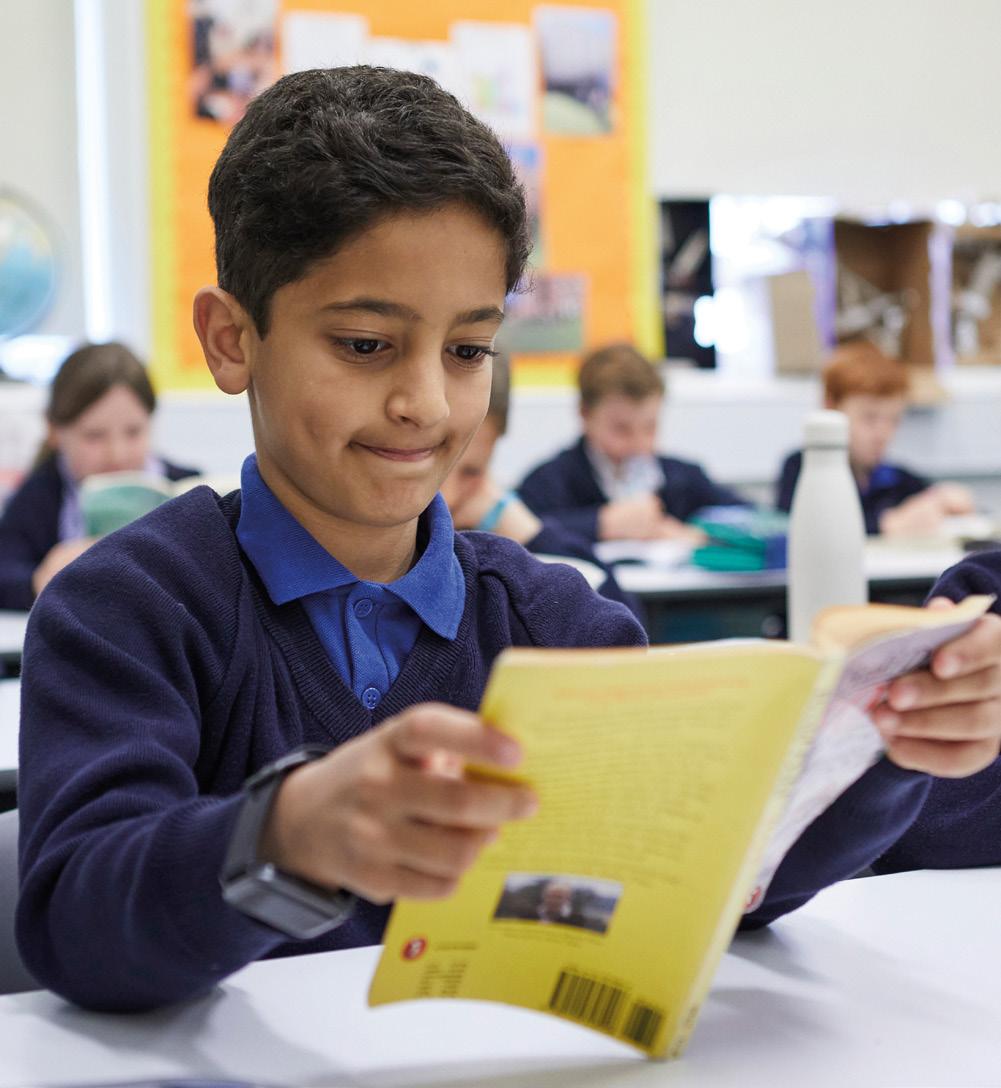

SECONDARY
SECONDARY IGCSE
Exams at end of Year 11
YEAR 7 – 11
11 – 16 YEARS OLD
Deeper learning and results
Cambridge International Secondary Curriculum Students in Year 7 to Year 11 study the Cambridge International Lower Secondary Curriculum, followed by the Cambridge Upper Secondary International GCSE programme. IGCSE courses typically offered at both King’s College and other Inspired schools include English First Language, English Literature, English as a Second Language, Geography, History, Global Perspectives, French, Spanish, Physics, Chemistry, Biology, Art & Design, Music, Mathematics, and Additional Mathematics. SIXTH FORM IB Diploma
Exams at end of Year 13
YEAR 12 – 13
17 – 18 YEARS OLD
Think and act
International Baccalaureate Diploma Programme The final two years at school mark the beginning of the International Baccalaureate Diploma Programme. The International Baccalaureate (IB) Diploma Programme aims to develop critical and compassionate thinkers who, as learners in the 21st century, are prepared for success at university and life beyond. In order to facilitate lifelong learning, we offer a challenging and balanced twoyear curriculum.

Cambridge International GCSEs
IGCSEs are the national British curriculum exams taken at the end of Year 11, and at King’s College School, students will study the Cambridge International version of these. The International GCSE content is more global in its context. Cambridge IGCSEs are the world’s most popular international curriculum for 14-16 year olds, leading to globally recognised and valued Cambridge IGCSE qualifications. A broad range of subjects is on offer to give a curriculum which accentuates personal enquiry and independent study, as well as appealing to the unique strengths and ambitions of each student.
All students study Maths, English, Spanish, Physics, Chemistry and Biology at IGCSE. In addition, students can choose from the following subjects: Art, Computing, Drama, Economics, Environmental Management, Geography, History, Physical Education and Music. Cambridge IGCSEs encourage learner-centred and enquiry-based approaches to learning. They develop learners’ skills in creative thinking, enquiry and problem solving, giving learners excellent preparation for the next stage in their education. In addition to the core curriculum, we extend it to suit each student’s need and introduce cross-curricular perspectives to ensure learning is broad and engaging. Cambridge IGCSEs develop learner knowledge, understanding and skills in: • Subject content • Applying knowledge and understanding to familiar and new situations • Intellectual enquiry • Flexibility and responsiveness to change • Working and communicating in English • Influencing outcomes • Cultural awareness

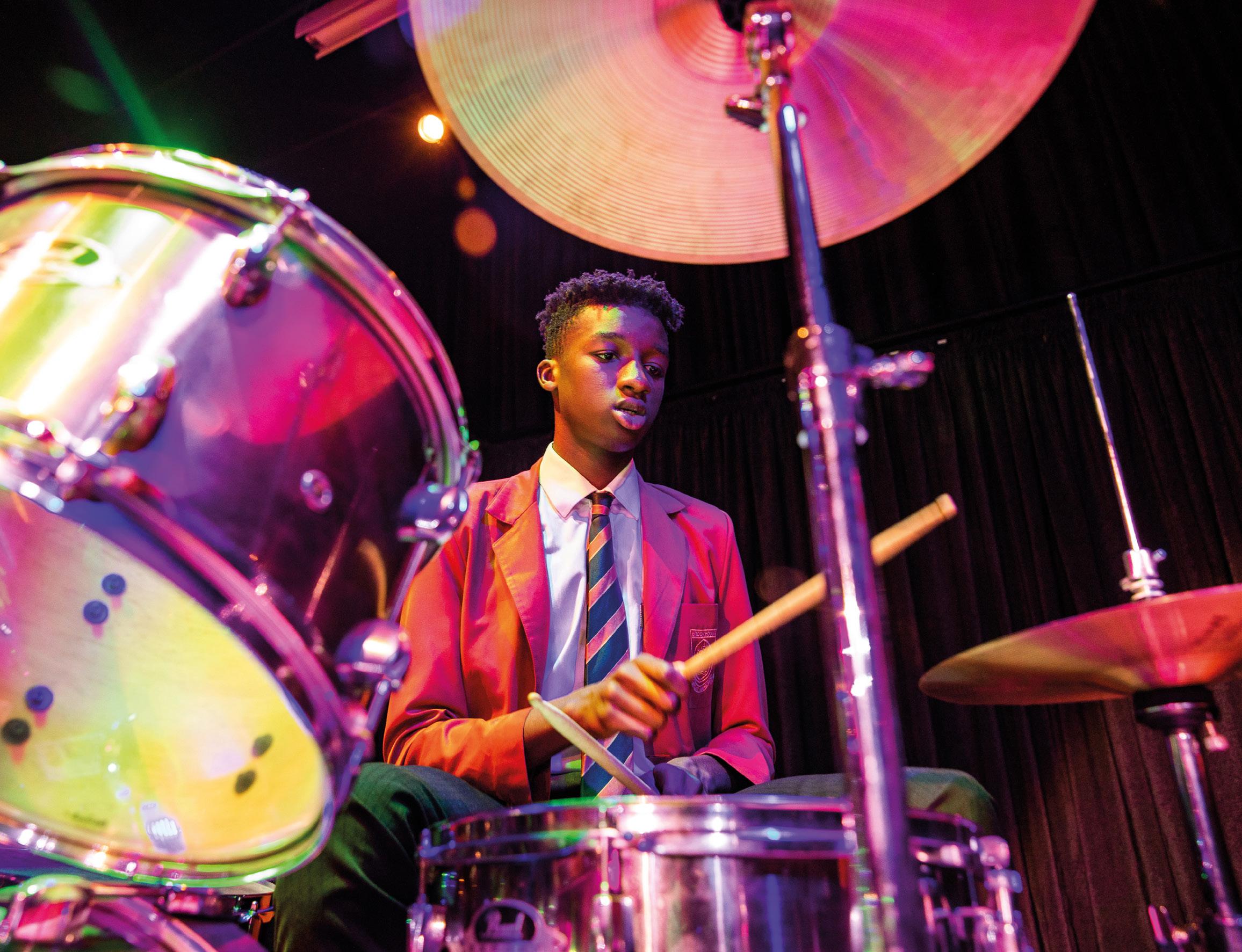
International Baccalaureate Diploma Programme
Having completed their studies under the Cambridge International GCSE model until the age of 16, Sixth Form students are offered a continuity of learning through the IB Diploma Programme (IBDP). The IBDP is an academically challenging and balanced programme of education with final examinations. It is undertaken between the ages of 16-19 (Academic years 12 and 13) and is specifically designed to prepare students for success in higher education and to be active participants in a global society. The Diploma Programme prepares students for effective participation in a rapidly evolving and increasingly global society, allowing students to: • Develop physically, intellectually, emotionally and ethically. • Acquire breadth and depth of knowledge and understanding, studying courses from six subject groups. • Develop the skills and a positive attitude towards learning that will prepare them for higher education. • Study at least two languages and increase understanding of cultures, including their own. • Make connections across traditional academic disciplines and explore the nature of knowledge through the programme’s unique theory of knowledge course. • Undertake in-depth research into an area of interest through the lens of one or more academic disciplines in the extended essay. • Enhance their personal and interpersonal development through creativity, action and service.

The IB Curriculum
IBDP students must choose one subject from each of the five groups (1 to 5), ensuring breadth of knowledge and understanding in their native language, additional language(s), the social sciences, the experimental sciences and mathematics. Students must also choose either an arts subject from group 6, or a second subject from groups 1 to 5. DP subjects can be taken at higher level or standard level. At least three and not more than four subjects are taken at higher level (240 teaching hours), while the other subjects are taken at standard level (150 teaching hours). Two DP subjects are classified as interdisciplinary subjects and so satisfy the requirements of more than one subject group: • Literature and performance – group 1 and group 6 • Environmental systems – group 3 and group 4 In addition to disciplinary and interdisciplinary study, the Diploma Programme features three core elements that broaden students’ educational experience and challenge them to apply their knowledge and skills.
The core of the Diploma Programme
• The extended essay asks students to engage in independent research through an in-depth study of a question relating to one of the DP subjects they are studying. The world studies extended essay option allows students to focus on a topic of global significance which they examine through the lens of at least two
DP subjects. • Theory of knowledge develops a coherent approach to learning that unifies the academic disciplines. In this course on critical thinking, students inquire into the nature of knowing and deepen their understanding of knowledge as a human construction. • Creativity, action, service (CAS) involves students in a range of activities alongside their academic studies throughout the Diploma Programme. Creativity encourages students to engage in the arts and creative thinking. Action seeks to develop a healthy lifestyle through physical activity. Service with the community offers a vehicle for new learning with academic value. The three strands of CAS enhance students’ personal and interpersonal development through experiential learning and enable journeys of self-discovery.



Sports and Clubs
In addition to the core academic curriculum at King’s College School, we are also proud to have a multitude of clubs and extracurricular activities as we believe these enhance each individual student’s personal pursuits and passions. Traditionally sport and team play have been an important part of physical and mental development at Inspired schools. Being part of a team teaches children to understand tactics, cooperation and fair-play. We hope that children at King’s College School learn to be chivalrous winners and gracious losers. Involvement in competitive sport is fun, but the real value is in developing teamwork and working hard physically towards a goal. The health of your child is as important as their intellectual growth and we provide physical education in the curriculum as well as opportunities to play competitive sport after school. We invest in first-class sporting facilities, including football pitches, tennis and padel courts, as well as a 25m swimming pool. These facilities ensure that our students have access to a wide range of sporting options. The school also boasts dance, drama and art studios, an adventure park playground, and plenty of green spaces and shaded areas for students to enjoy. In all year groups the children benefit from fresh air and physical fitness. There are many school clubs outside the curriculum that challenge children mentally – such as chess and Chinese as well as physically, such as swimming and tennis. Clubs and sports are examples and may differ when the school opens in August 2022, some clubs and sports are chargeable.

We invest in first-class facilities, so that our students have access to all the necessary technology, space and equipment to optimise their learning outcomes.
Sport activities include:
• Football • Athletics • Swimming • Tennis • Dance • Scuba Diving • Snorkelling • Table Tennis • Basketball
Other clubs include:
• Chess • Coding • Creative Workshop • Newspaper • Robotics • Stop Motion Animation • French • German • Spanish • Drama • Debating • Guitar • Piano • LEGO® STEAM • Choir • Percussion • Horse Riding • Martial Arts
Our facilities include:
• Multi-purpose hall • 25 metre outdoor swimming pool • Floodlit Astro-turf multi-sport pitch • Tennis courts • Padel courts • Fitness centre • Adventure park playground • Ballet room • Dance and
Drama Studios • Art Studios









